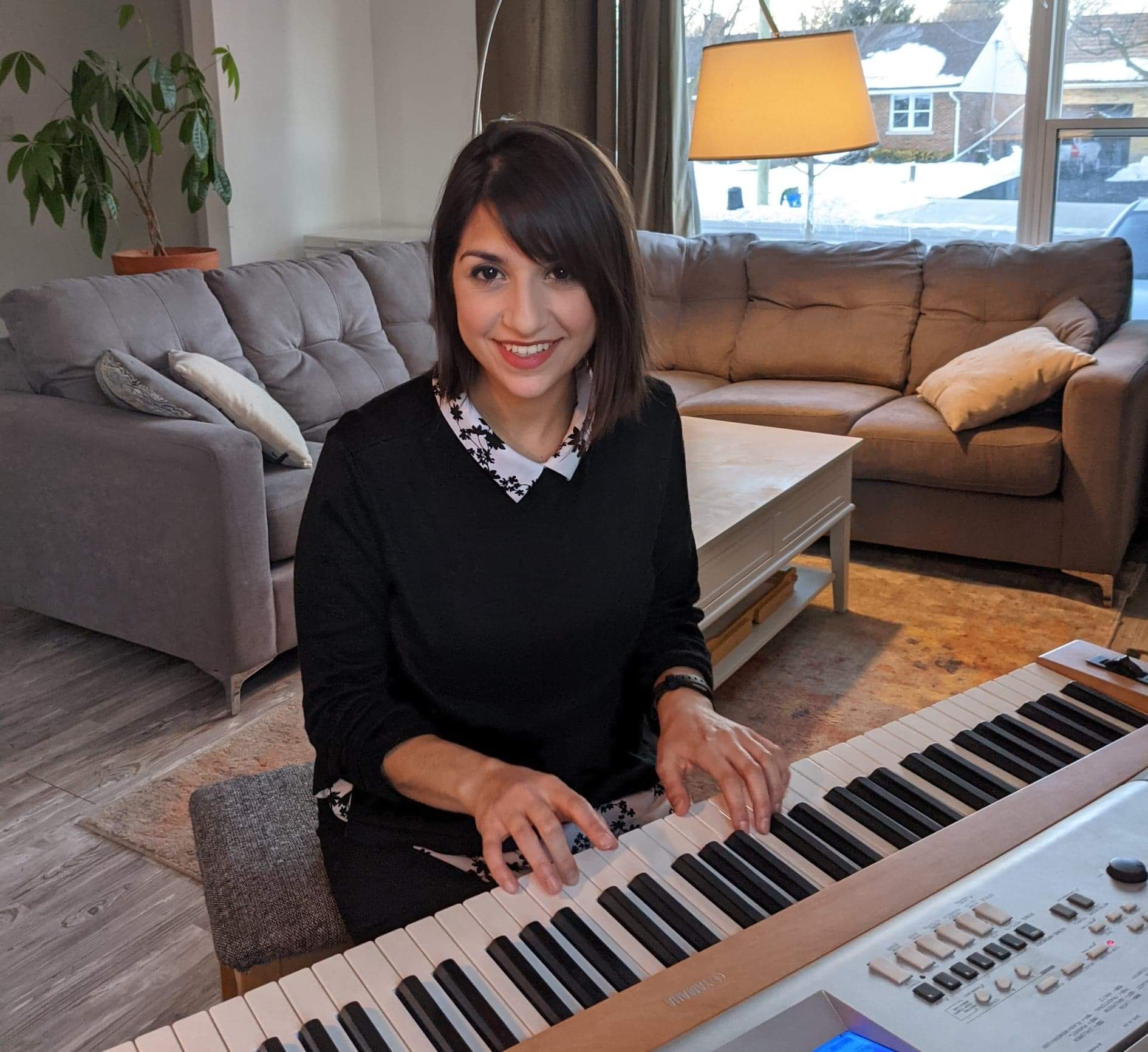“As someone who had previously been hospitalized, learning about music and its rehabilitative effects hit close to home. I remember thinking, ‘Why wasn’t this an option for me,’ or ‘Why didn’t I know about this?’ From that moment on, I knew that I wanted to pursue a career in music therapy and be an advocate for the field so that people know music therapy can be an option for them.”
— Sophia Christopher – Seniors Mental Health; Neurobehavioral and Transitional Support Units
I always identified with music and always wondered why music can be so motivational. I was first introduced to music therapy when I had the opportunity to interview Elizabeth Mitchell, assistant professor and current coordinator of the Bachelor of Music Therapy at Wilfrid Laurier University. Mitchell explained the different models of music therapy and provided such significant case scenarios that I immediately fell in love with the field.
As a neurologic music therapy fellow, I specialize in neurologic rehabilitation, working with a variety of individuals experiencing neurologic conditions to regain physical functions and retrain behaviour. I am located at Grand River Hospital’s Freeport Campus and provide neurologic rehabilitation and specialized care on multiple units throughout the hospital. I love the neurologic aspect of music—how music is processed in the brain and how music can be used in neurologic and physical rehabilitation. I find it fascinating that we can use music, something humans inherently love and are moved by, as a tool for rehab. And it works!
I often think back to an individual who I worked with in a long term care facility. This resident was 8-years post stroke and was experiencing severe aphasia. As a result, his language was limited to inconsistent yes/no responses. When I went to introduce myself, he was excited to be able to show his collection of jazz and swing records. We then sat down together and I implemented Musical Speech Stimulation, an intervention that incorporates the use of well-known songs to stimulate speech and completion of familiar lyrics. Immediately, he was able to follow along and sang his first words. Surprised, he stopped, laughed, and shook my hand with delight. From that moment on, he would surprise his care staff by singing, and eventually we got the entire unit involved in his speech rehab plan.
It feels so amazing and rewarding when we, as music therapists, are able to work with those “extreme” patient cases – perhaps someone who has lost their motivation to continue in their rehab program, or perhaps it’s someone who has lost their voice, but can sing to their loved ones – and being able to contribute to both their physical experience at Freeport as well as enhance their quality of life.
-- Sophia Christopher, MTA, RP, NMT-F
Accredited Music Therapist
Registered Psychotherapist
Neurologic Music Therapy Fellow

